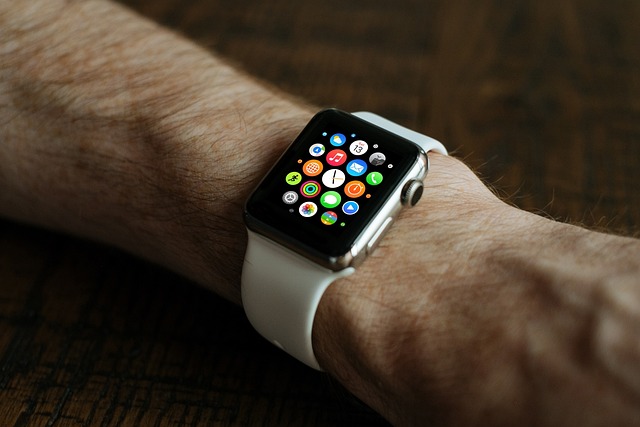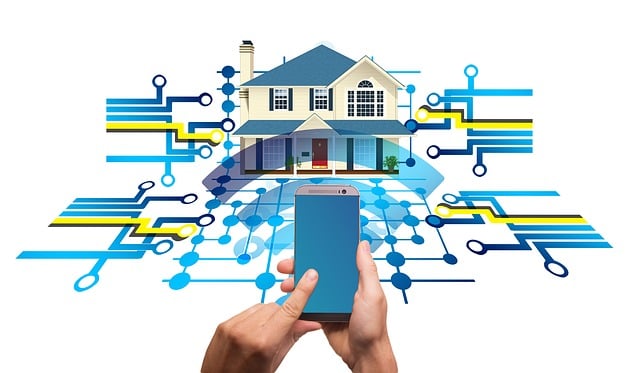Table of Contents
Smart Home Devices
Smart home devices have revolutionized the way we interact with our living spaces. From smart thermostats that learn our habits and adjust the temperature accordingly to voice-activated assistants that can control various aspects of our homes, the integration of artificial intelligence (AI) has made homes more efficient and convenient. With the ability to connect to other devices and be controlled remotely, smart home devices provide a seamless experience for users.
These devices not only offer convenience but also enhance home security. Smart cameras equipped with AI can detect and alert homeowners of any unusual activity, providing peace of mind even when they are away. Moreover, smart locks allow for secure access control, eliminating the need for physical keys and enabling homeowners to grant access to visitors remotely. The integration of AI in smart home devices is paving the way for a more interconnected and secure living environment.
Wearable Technology
Wearable technology continues to evolve and shape the way we interact with our daily lives. From fitness trackers to smartwatches, these devices have become indispensable tools for monitoring our health and activity levels. With the integration of Artificial Intelligence (AI), wearables can now provide personalized insights and recommendations to help users make informed decisions about their well-being.
Moreover, the advancement of wearable technology has extended beyond health and fitness to include smart clothing and accessories that can enhance our overall lifestyle. These innovative wearables can track biometric data, customize preferences, and even offer assistance in various tasks. With the integration of AI, wearable technology is poised to become even more intuitive and adaptive, providing users with a seamless and personalized experience.
Health and Fitness Apps
Health and fitness apps have revolutionized the way individuals track their physical activity and overall well-being. With the integration of Artificial Intelligence (AI) technology, these apps can provide personalized workout plans based on the user’s goals and fitness level. Users can easily monitor their daily steps, calorie intake, and sleep patterns through intuitive interfaces and interactive features.
Additionally, AI-powered health and fitness apps can offer real-time feedback and motivational messages to keep users engaged and motivated. These apps can also analyze data collected from wearables and other devices to provide insights into the user’s health trends and progress over time. As the demand for convenient and personalized health solutions continues to grow, the advancements in AI technology will undoubtedly play a crucial role in shaping the future of health and fitness apps.
Virtual Assistants
In recent years, the integration of artificial intelligence (AI) in virtual assistants has revolutionized the way we interact with technology. These AI-powered assistants, such as Amazon’s Alexa, Apple’s Siri, and Google Assistant, are designed to understand natural language commands and perform a wide range of tasks, from setting reminders and appointments to providing real-time information on various topics.
As virtual assistants continue to evolve, we are seeing more sophisticated features being introduced, such as personalized recommendations based on user behavior and preferences. This level of customization not only enhances user experience but also showcases the potential of AI in understanding and adapting to individual needs. With the growing popularity of virtual assistants in smart homes and other connected devices, it is clear that AI is playing a crucial role in shaping the future of technology and how we interact with it.
Connected Cars
Connected cars utilize Artificial Intelligence (AI) to enhance the driving experience through integration with various sensors and systems. These vehicles can collect and analyze data in real-time, allowing for predictive maintenance and improved safety features.
AI in connected cars enables advanced navigation systems that can provide real-time traffic updates and suggest alternate routes to reach destinations faster. Additionally, these vehicles can autonomously adjust settings like temperature, music, and seating preferences based on individual preferences for a more personalized driving experience.
Smart Security Systems

Smart security systems have revolutionized the way we protect our homes and businesses. With the integration of artificial intelligence (AI), these systems can now analyze patterns, detect anomalies, and provide real-time alerts to homeowners. Cameras equipped with facial recognition technology can identify familiar faces and send notifications when unknown individuals are detected on the property.
Furthermore, smart security systems can be remotely accessed and controlled through mobile devices, allowing users to monitor their premises from anywhere at any time. The ability to receive instant alerts and view live footage provides a sense of security and peace of mind, while also deterring potential intruders. In an age where technology continues to advance, smart security systems offer a proactive approach to safeguarding our spaces.
Smart Appliances
Smart Appliances have revolutionized the way we interact with our everyday household items. By integrating Artificial Intelligence (AI) technology, these devices can now learn user preferences and adapt their settings accordingly. From refrigerators that track food expiration dates to washing machines that suggest optimal wash cycles based on fabric types, smart appliances offer convenience and efficiency like never before.
In addition to enhancing convenience, smart appliances also contribute to energy conservation efforts. Utilizing AI algorithms, these devices can analyze usage patterns and adjust settings to minimize energy consumption. For instance, smart thermostats can regulate temperature settings based on occupancy patterns, while smart dishwashers can optimize water usage for different load sizes. With the integration of AI, smart appliances not only simplify household tasks but also promote sustainability in our daily lives.
Smart Energy Management
In today’s innovative landscape, technology continues to revolutionize the way we manage energy consumption in our homes and buildings. Through the integration of Artificial Intelligence (AI) algorithms and Internet of Things (IoT) sensors, smart energy management systems enable real-time monitoring and optimization of energy usage. These systems analyze data on electricity consumption patterns, environmental conditions, and user preferences to automatically adjust settings for heating, cooling, lighting, and other energy-intensive appliances.
By leveraging AI-driven insights, smart energy management solutions empower users to make informed decisions that can lead to significant cost savings and reduced carbon footprints. Through predictive analytics and machine learning algorithms, these systems can forecast energy demand, detect energy inefficiencies, and suggest personalized recommendations for improving energy efficiency. Ultimately, by harnessing the power of AI and IoT technologies, smart energy management is paving the way for a more sustainable and environmentally-conscious approach to energy consumption.
Smart Cities
Smart cities, powered by Artificial Intelligence (AI) and Internet of Things (IoT) technologies, are transforming urban landscapes worldwide. With interconnected devices and sensors, cities can optimize infrastructure, improve public transportation, enhance public safety, and so much more. AI algorithms analyze massive amounts of data in real-time, providing valuable insights for city planners to make informed decisions and enhance efficiency. Through smart waste management systems, intelligent traffic solutions, and automated energy consumption monitoring, cities are paving the way for a sustainable and connected future.
In the realm of smart cities, the integration of AI-driven technologies is revolutionizing how urban areas operate. By harnessing the power of data analytics and machine learning, cities can predict traffic patterns, prevent crime, manage resources effectively, and respond swiftly to emergencies. From smart traffic lights that adjust based on traffic flow to predictive maintenance of infrastructure, AI is at the forefront of creating safer, greener, and more efficient urban environments. As cities continue to invest in smart technologies, the potential for AI to enhance the quality of life for residents and shape the cities of tomorrow is boundless.
Augmented Reality
Augmented Reality is revolutionizing various industries with its ability to overlay digital information onto the physical world in real-time. Through the use of specialized glasses or smartphone apps, users can experience an enhanced version of reality by interacting with computer-generated graphics, data, and other virtual elements seamlessly integrated into their surroundings. This technology has opened up new frontiers in fields such as education, retail, and entertainment, offering immersive experiences that were previously unimaginable.
Artificial Intelligence (AI) plays a crucial role in enhancing the capabilities of Augmented Reality by enabling real-time data processing, object recognition, and personalized content delivery. By leveraging AI algorithms, AR devices can analyze the user’s environment, understand their preferences, and provide customized information tailored to their needs. This synergy between Augmented Reality and Artificial Intelligence is propelling innovation and paving the way for a future where digital and physical worlds merge seamlessly to create rich, interactive experiences.
Artificial Intelligence
Artificial Intelligence has revolutionized various industries, offering innovative solutions that enhance efficiency and productivity. AI technology enables machines to simulate human intelligence, carrying out tasks such as data analysis, problem-solving, and decision-making with remarkable accuracy and speed. As businesses strive to stay competitive in today’s fast-paced environment, the integration of AI tools has become essential to streamline operations and drive growth.
Moreover, the impact of Artificial Intelligence extends beyond business applications, influencing everyday life with smart devices and services powered by AI algorithms. From virtual assistants providing personalized recommendations to autonomous vehicles navigating roads autonomously, AI has permeated consumer technologies, reshaping how individuals interact with their surroundings. As AI continues to advance, the possibilities for creating more intelligent and autonomous systems are limitless, paving the way for a future where machines play an increasingly integral role in human society.
• AI technology enables machines to simulate human intelligence
• Tasks such as data analysis, problem-solving, and decision-making are carried out with remarkable accuracy and speed
• Integration of AI tools has become essential for businesses to streamline operations and drive growth
• AI algorithms power smart devices and services in everyday life
• From virtual assistants to autonomous vehicles, AI has reshaped how individuals interact with their surroundings
• Possibilities for creating more intelligent and autonomous systems are limitless as AI continues to advance
Internet of Things
The seamless connectivity and integration of everyday objects, enabled by technology, has revolutionized the way devices interact and communicate with each other. Through sensors and data sharing, this network of interconnected devices enhances efficiency, convenience, and overall user experience in various aspects of daily life. From smart homes with automated systems to wearable technology that monitors health metrics, the Internet of Things has permeated numerous industries, promising a more interconnected and digitally-driven future.
Artificial Intelligence (AI) plays a pivotal role in the Internet of Things ecosystem by enabling devices to learn from data, make intelligent decisions, and adapt to user preferences. By leveraging machine learning algorithms and predictive analytics, AI enhances the capabilities of connected devices, allowing them to anticipate user needs, optimize performance, and improve overall functionality. As the Internet of Things continues to evolve and expand its reach, the synergy between AI and interconnected devices will shape a more intelligent and interconnected world, facilitating a seamless integration of technology into our daily lives.
Emerging Trends in Smart Technology
One of the most notable developments in the realm of smart technology is the growing integration of Artificial Intelligence (AI). AI is revolutionizing various industries, from healthcare to finance, by streamlining processes, enhancing decision-making capabilities, and providing personalized user experiences. As AI continues to advance, we can expect to see even more sophisticated applications in smart devices and services, further improving efficiency and convenience for users.
Another emerging trend in smart technology is the increasing focus on Internet of Things (IoT) devices that foster seamless connectivity and automation in our daily lives. IoT devices, ranging from smart lighting systems to connected vehicles, are reshaping how we interact with our surroundings and helping us create more sustainable and efficient living spaces. With the continued expansion of IoT ecosystems, we are witnessing a shift towards a more interconnected and intelligent world where data-driven insights drive innovation and enhance user experiences.


